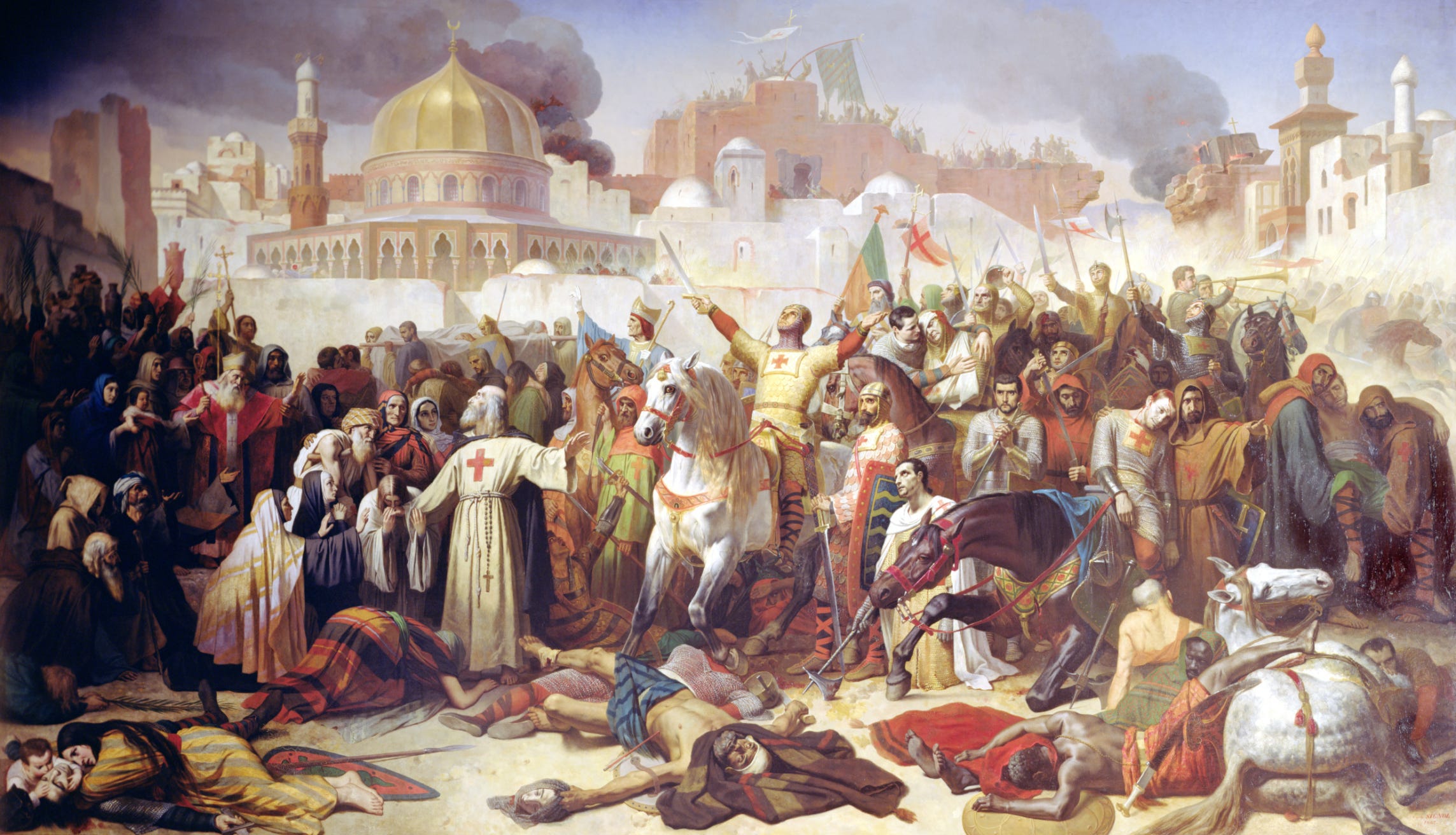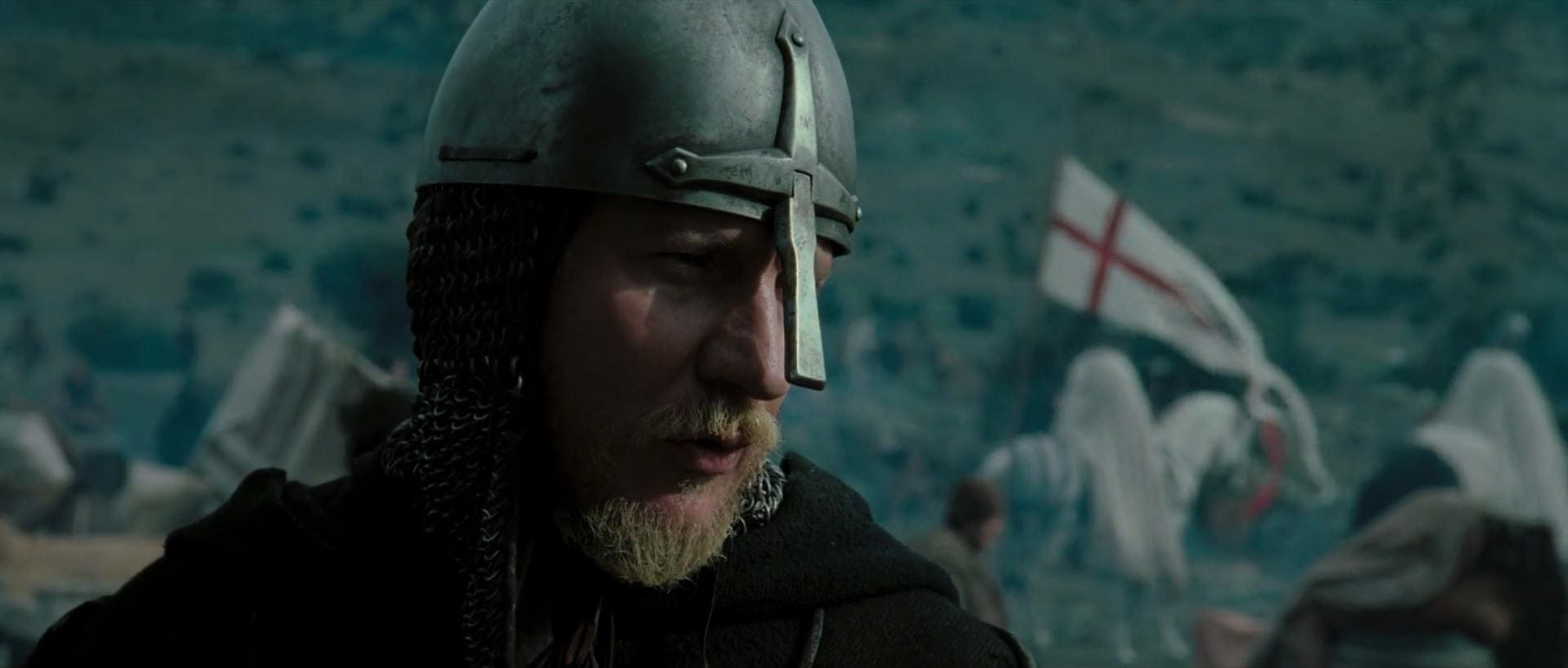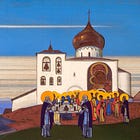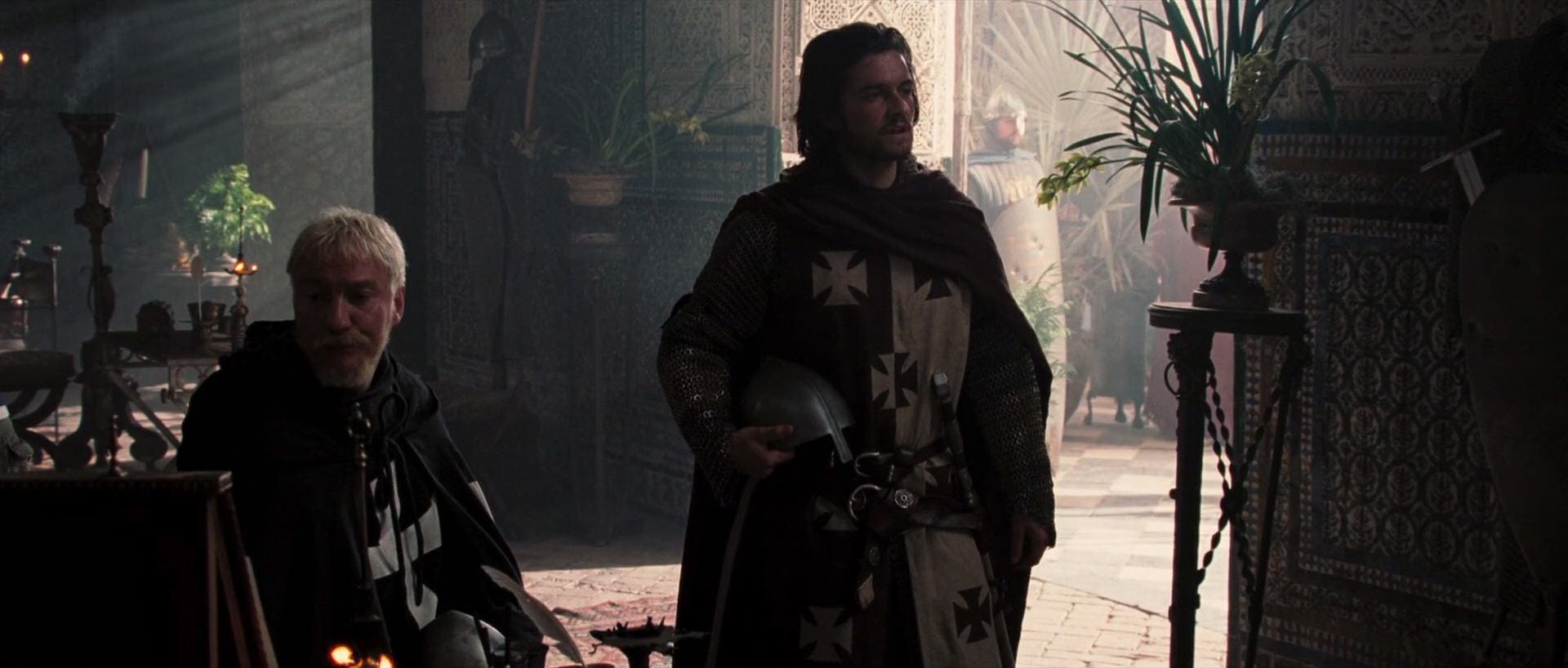What is Jerusalem Worth?
True Religion: Part Two – The Kingdom of Heaven is not built of stone and swords, but in every human heart.
East Jerusalem, Palestine: August, 2024
Of all the things that I imagined I would find upon my first visit to Jerusalem, I never expected to find it empty. Long have I desired to visit this holiest of cities, but when my path inevitably drew me here, I arrived not as a religious pilgrim, but as a documentarian. This city is merely to serve as a base of operations for a story I came here to tell. A story not about faith, but about war, occupation, and genocide.
This is not the first time Jerusalem has been the sight of conflict. Within history, this city lies ever in the shadow of war and misery. Forty years after the death of Christ, the Roman Emperor Titus lay siege to Jerusalem which, at the time served as the heart of Jewish resistance to Roman rule in the Province of Judea, laying waste to the temple, and carrying off its spoils.
In the centuries that followed, Jews suffered poor treatment at the hands of Byzantine Christians, who forbade them from entering the Holy City except on Tisha B’Av, the Day of Mourning for the destruction of the Temple. They were allowed to return to the city following the Islamic conquest of the Levant, and fared slightly better under Muslim rule.
Two thousand years after the death of Christ on the cross at Calvary, Jerusalem does not seem to be bringing us any closer to peace on earth.
Centuries later, when knights of the First Crusade besieged neighboring Haifa, Jews and Muslims fought side by side against the invaders and were slaughtered together without quarter. When the Crusaders reached Jerusalem, Muslims and Jews once again fought alongside one another, and were slain indiscriminately as their places of worship burned over their heads. The Kingdom of Jerusalem was born, and medieval maps were drawn up placing Jerusalem at their center, the axis mundi of all Christendom.
Fewer than two hundred years had passed when Muslims once again asserted control over the city, effectively putting an end to Christian aspirations in the Holy Land. More crusades followed, Jerusalem changed hands again, first to the Ottomans, then the British, and finally the Zionists. Today, it continues to be the axis mundi of global conflict and intrigue, though not strictly in a religious sense. Much blood and even more ink has been spilled over the importance of this city to the Western world’s three great religious traditions; Islam, Christianity, and Judaism. But two thousand years after the death of Christ on the cross at Calvary, the Bayt al-Maqdis– the House of Holiness–does not seem to be bringing us any closer to peace on earth.
And That’s So You Remember It
There are only a handful of truly excellent Medieval films, and among them Ridley Scott’s Kingdom of Heaven stands out as one of the best. Set against the backdrop of the Siege of Jerusalem in 1187, the film explores themes of duty, redemption, and religious conflict. Stirring performances by Edward Norton, Liam Neeson, Jeremy Irons, and Brendan Gleeson outshine a somewhat wooden performance from Orlando Bloom, who, by 2005, was already losing his lustre as a Hollywood leading man. All of these performances are, in my opinion, outdone by that of David Thewlis, who plays an unnamed member of the Knights Hospitaller, a religious order dedicated to the protection of pilgrims journeying to the Holy Land. Thewlis has accrued few of the accolades that Irons or Gleeson have garnered and has little of the star power of a Neeson or Bloom. Most viewers will likely only recognize him for his role as Remus Lupin in the Harry Potter films. Nevertheless, Thewlis’ unnamed Hospitaller serves, alongside Edward Norton’s King Baldwin, as the beating heart of the film.
Holiness is in right action, and courage on behalf of those who cannot defend themselves, and goodness.
Thewlis cements his performance in a single line of dialogue that he delivers to Bloom’s character, Balian of Ibelin. “I put no stock in religion” declares Thewlis. “By the word religion I have seen the lunacy of fanatics of every denomination be called the Will of God.” He then offers his own definition of true religion. “Holiness is in right action, and courage on behalf of those who cannot defend themselves, and goodness. What God desires is here [mind] and here [heart] and what you decide to do every day will make you a good man...or not.”
Ridley Scott is an avowed atheist and secularist, and many of his films offer up intense critiques of Christianity, usually leveled at its hypocritical adherents, rather than its admirable tenets. It is interesting, then, that Scott should, with this single line of dialogue, come remarkably close the only definition of true religion to be found in the Biblical New Testament. The likely pseudonymous author of the Epistle of James provides it:
“Religion that is pure and undefiled before God the Father is this: to visit orphans and widows in their affliction, and to keep oneself unstained from the world.” (James 1:27 ESV).
While not attributed to Jesus, this definition bears striking parallels to Jesus’ discourse in Matthew 25:35 regarding who enters the Kingdom of Heaven:
“For I was hungry and you gave me food, I was thirsty and you gave me drink, I was a stranger and you welcomed me, I was naked and you clothed me, I was sick and you visited me, I was in prison and you came to me. Then the righteous will answer Him, ‘Lord, when did we see You hungry, and feed You, or thirsty, and give You something to drink? And when did we see You as a stranger, and invite You in, or naked, and clothe You? And when did we see You sick, or in prison, and come to You?’ The King will answer and say to them, ‘I assure you and most solemnly say to you, to the extent that you did it for one of these brothers of Mine, even the least of them, you did it for Me.’
There you have it. Within and beyond all the hieratic scaffolding erected around the words of Christ, the nature of salvation, and the expectations of religion lies this simple, straightforward charge: care for those who cannot care for themselves. According to Jesus, this is the beating heart of authentic Christian faith, and the reason why “all the masters of the spiritual life insist so strongly on the importance of the little things.”1
Religion as Practice
This reflection is meant as a complement to the philosophical perspective I outlined in my essay on the Perennial Philosophy. Perennialism–a form of traditionalist Universalism–is the religious outlook to which I adhere intellectually, and this reflection is about what I consider to be a practical outworking of that faith, one that transcends belief in one or other set of theological tenets, whether within my own Christian faith or outside of it.
Implicit within this charge from the Epistle of James is an acknowledgement that the working out of one’s faith is, in most cases, a tremendously simple practice. It requires neither the disposition of a theologian nor the discipline of a priest. Holiness is in right action, and courage on behalf of those who cannot defend themselves, and goodness.
Organized religion isn’t going anywhere, and any attempt to transform the world will have to reckon with it in one way or another. The gods, the gold, the heresy and the blood all demand an answer.
These are concrete and universal principles. I know what is right, and yet I fail every day to do it. On the contrary, like St. Paul; “I do not do what I want, but I do the very thing I hate.”2 I do this every time I level a harsh or impatient word at my roommate. I do it every time I choose to ignore the homeless man at the corner of Lincoln Boulevard and the on-ramp to Highway 10. (So what if he spends my money on booze? I was going to spend it on booze anyway.)
Most people who turn away from one or other religious faith rarely cite the underlying tenets of that spiritual belief, but rather the self-evident hypocrisy of its adherents that seems to plague every organized religion. Each Sunday, Church pews are filled with all manner of bigots and creeps, spiritual charlatans and self-centered pharisees who care more about their own comfort and privilege than comforting the underprivileged. From the Civil Rights movement to the fight for queer visibility and protection, the Church, at least in its American branch, has failed many if not most tests set before it. It is still, in many ways, precisely what Walker Percy described in 1965 as the “pleasant Sunday lodge of conservative Southern businessmen which offends no one and which no one takes seriously.”3
Most people who turn away from one or other religious faith rarely cite the underlying tenets of that spiritual belief, but rather the self-evident hypocrisy of its adherents.
This type of hypocrisy does not merely affect American Protestantism. It plagues every major religious institution in the world, partially due to the contradictions inherent within the idea of a religious institution.
The world’s religions have long vied with each other in a ghastly competition over who can be the nastiest to all the others. Secularists are persecuting Buddhists in Tibet, but Buddhists are persecuting Sunni Muslims in Burma. Sunni Muslims are persecuting Shia Muslims in Lebanon and Saudi Arabia while Shia Muslims are persecuting Christians in Azerbaijan. Christians are persecuting Jews again in Poland, meanwhile Jews, in a truly stunning display of one-upmanship, are persecuting Sunni and Shia Muslims, Christians, Druze, and secularists in Palestine, Lebanon, and Syria. It seems that religious violence among humans has less to do with the religion and more more to do with the humans.
Nonetheless, as I discussed in my reflection on the Perennial Philosophy, religious affiliation among the leading religions remains the dominant form of spiritual organization among humans, even in our enlightened, secular age.
Each Sunday, Church pews are filled with all manner of bigots and creeps, spiritual charlatans and self-centered pharisees who care more about their own comfort and privilege than comforting the underprivileged.
Simply put, organized religion isn’t going anywhere, and any attempt to transform the world will have to reckon with it in one way or another. The gods, the gold, the heresy and the blood all demand an answer.
The New Atheists did this by discarding the whole edifice of religious faith and practice altogether as so much superstitious mumbo, throwing the likes of St. Thomas Aquinas, Boethius, and Rumi on the cleansing pyre alongside Creationism, fundamentalist Christian Protestantism, and Salafist Islam. Perhaps this is why New Atheism was such a crude and short-lived movement.
So we return to Jerusalem, the crossroads of three of the world’s great faith traditions, for the answers.
Of Christendom and Christianity
For two millennia, sectarian struggles within the great Abrahamic Faith have made war upon one another in the name of preserving this holiest of cities. Even now, rockets light the night sky above it as the struggle for who belongs in the Kingdom of Heaven continues.
In the name of religion, we have darkened its skies with smoke, made its streets run with blood, and filled its holy corridors with the screams of the innocent. In all of this, we fail to acknowledge the simple fact that, try as we might, we cannot build the Kingdom of Heaven in Jerusalem because Jerusalem will be destroyed. It has been destroyed before, and it will be again. If not in this war, then in the next.
The world’s religions have long vied with each other in a ghastly competition over who can be the nastiest to all the others.
We cannot build it in Washington, even though it seems that a staggering portion of our population–most visible in recent selections for Trump’s cabinet–seem eager to try. Every effort to do so will end in the same miserable result. For what is a man profited, if he shall gain the whole world, and lose his own soul?4 What modern Crusaders fail to realize that in trying to save Christendom, they will lose Christianity.
You see, the Kingdom of Heaven is not built of stone and swords. It is built in every human heart, every day, by every action that extends to “the least of these” the same kindness that we would hope to show the Lord of the Universe.
Religious, but not Spiritual
How then might we restore a proper understanding of the place of religion in our public life? How can we rescue, from the wreckage of history, the beauty and guidance of practical religious faith? That is a discussion for a future post. You have indulged me long enough, and my own thoughts on this subject require more time–and a more generous word count–to fully explain.
There is, I believe, on the other side of rootless New Age spiritualism and the empty religion of rules and rote, a Kingdom governed by the rules of the heart, rather than those the head. An Axis Mundi that is simultaneously everywhere and nowhere, where “the line dividing good and evil cuts through the heart of every human being.”5
True religion can be a matter of fact, rather than a matter of faith, for the rules of the heart are simple, and the door to the Kingdom of Heaven is open to all who truly wish to find it.
Relevant Quotations:
It is because we don't know who we are, because we are unaware that the Kingdom of Heaven is within us, that we behave in the generally silly, the often insane, the sometimes criminal ways that are so characteristically human. We are saved, we are liberated and enlightened, by perceiving the hitherto unperceived good that is already within us, by returning to our eternal ground and remaining where, without knowing it, we have always been.
– Aldous Huxley, The Perennial Philosophy
There is no one in the world who cannot arrive without difficulty at the most eminent perfection by fulfilling with love obscure and common duties.
—J. P. de Caussade
If your bonds be not broken whilst living, what hope of deliverance in death?
- Kabir
God requires a faithful fulfillment of the merest trifle given us to do, rather than the most ardent aspiration to things to which we are not called.
— St. Francis de Sales
Aldous Huxley, The Perennial Philosophy (New York: Harper & Row, 1945), 42.
Romans 7:15, English Standard Version
Walker Percy, “The Failure and the Hope,” 1965, republished in The Failure and the Hope: Essays of Southern Churchmen, ed. Will D. Campbell and James Y. Holloway (Grand Rapids, MI: Eerdmans, 1972), 27.
Matthew 16:26, King James Version
Aleksandr Solzhenitsyn, The Gulag Archipelago 1918–1956: An Experiment in Literary Investigation, trans. Thomas P. Whitney (New York: Harper & Row, 1974), 168.









The St. Francis quote summarizes certain Biblical truths: Matthew 25:23~ “ His master said to him, ‘Well done, good and faithful servant. You have been faithful over a little; I will set you over much. Enter into the joy of your master.’”